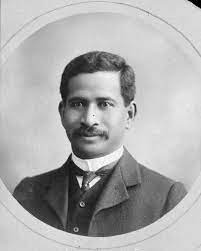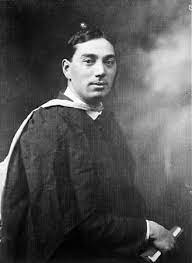To comment please open your gmail account or use my email address, FB Messenger or Twitter.
"Printery for the Papists" https://nzhistory.govt.nz/media/photo/pompallier - Bishop Pompallier's endeavour
Pakeha New Zealanders who suffer no angst over the question of race, who revere their forebears who brought Christ and Christian culture to this land, must take a stand and resist the Maorification of our nation and country.
We 'Whiteys' own New Zealand as tangata whenua just as much as people who lay claim to a few drops of Maori blood. Our ancestors came here to build a better world - and they did. We need to thank God for the society they established together with Maori like Sir Apirana Ngata and Sir Peter Buck, and defend it.
And the Catholic Church, whose role in founding New Zealand as a Christian nation was pre-eminent, needs to find its mojo, its mana, stop wringing its hands over Maori, stop patronising Maori and treat them as the equals they are of Pakeha, as "sons, heirs also; heirs indeed of God, and joint heirs with Christ" (Rom 8:17).
 |
| Sir Apirana Ngata |
 |
| Sir Peter Buck |
Left-leaning political commentator Chris Trotter has a few fairly persuasive remarks to make on what he calls "the Maori nationalist revolution". We'd better hear them. And reflect.
IF NEW ZEALAND’S educational curriculum was dedicated to condemning capitalism and uplifting the working class, would that signal a revolution? If working-class culture was elevated above the cultural achievements of the upper and middle classes, would that signal a revolution? If representatives of the trade unions exercised a decisive influence over the editorial direction of the news media and the content of university courses, would that signal a revolution?
Of course it would.
Nearly forty years ago, as the newly-elected Fourth Labour Government was pursuing its nuclear-free agenda, organising women’s forums, and preparing to destroy the achievements of the First, Second and Third Labour Governments, a handful of young trade unionists – Labour Party members all – lobbied the then Minister of Labour, Stan Rodger, for a daily bulletin of trade union news on Radio New Zealand.
Way back in 1984, New Zealanders could keep abreast of what was happening on New Zealand’s farms by tuning-in to “Rural News” Or, keep up with the machinations of industry and finance by listening to “Business News”. There was even a weekly programme called “Focus on Politics”. But, the only time New Zealanders ever got to hear about what was happening in the country’s factories, warehouses, offices and shops was when workers went out on strike.
“So, how about it, Stan, why not a daily, or weekly, round-up of news about the issues confronting working-class New Zealanders?” Now to give Stan Rodger his due, he gave us a fair hearing. Indeed, I think he was personally quite excited by the idea, because, eventually, a short series of programmes entitled “Working Life” did make it to air. But a daily round-up of news from the perspective of those working on the factory floor, or driving a truck, or standing at the check-out counter? Not a chance.
 |
| David Lange leader of the Fourth Labour Government |
Such a programme would have indicated a significant shift in social and economic power in the direction of working people. But, as we all know, the people running the Fourth Labour Government (not all of whom were democratically-elected politicians) were committed to shifting social and economic power in precisely the opposite direction – towards the bankers and the bosses.
That’s why there was a vast expansion in the coverage of business affairs on Radio New Zealand – and right across the news media. That’s why, in just a few years, the ideology of neoliberalism permeated the whole of New Zealand society. There had definitely been a revolution – but not by the workers.confronting working-class New Zealanders?” Now to give Stan Rodger his due, he gave us a fair hearing. Indeed, I think he was personally quite excited by the idea, because, eventually, a short series of programmes entitled “Working Life” did make it to air. But a daily round-up of news from the perspective of those working on the factory floor, or driving a truck, or standing at the check-out counter? Not a chance.
Such a programme would have indicated a significant shift in social and economic power in the direction of working people. But, as we all know, the people running the Fourth Labour Government (not all of whom were democratically-elected politicians) were committed to shifting social and economic power in precisely the opposite direction – towards the bankers and the bosses. That’s why there was a vast expansion in the coverage of business affairs on Radio New Zealand – and right across the news media. That’s why, in just a few years, the ideology of neoliberalism permeated the whole of New Zealand society. There had definitely been a revolution – but not by the workers.
New Zealand is currently living through another top-down revolution. Though far from complete, it has already captured control of the commanding heights of the public service, the schools and universities, the funding mechanisms of cultural production, and big chunks of the mainstream news media.
The ideology driving this revolution is not neoliberalism, it’s ethnonationalism. A potent amalgam of indigenous mysticism and neo-tribal capitalism has captured the imagination of the professional and managerial class and is relying on the latter’s administrative power and influence to drive through a revolutionary transformation of New Zealand society under the battle-flags of “indigenisation” and “decolonisation”. The glue which holds this alliance of Māori and Non-Māori elites together is Pakeha guilt.
The origins of the present ethnonationalist revolution may be traced back to the early 1980s – specifically the 1981 Springbok Tour. A very large and well-organised anti-racist movement against the Apartheid system in South Africa took to the streets to protest the presence in New Zealand of the Springbok rugby team. There they encountered not only the brutal forces of the state, but a vast number of New Zealanders who were not in the least bit shamed or shifted by the charges of racism hurled at them by the protesters. The Springbok Tour thus revealed a deep divide in New Zealand society, leaving many of the protesters feeling like strangers in their own land.
 |
| 1981 Springbok tour - when Kiwis were idealists |
The modern Māori nationalist movement, which had taken form during the 1970s, was quick to draw a large number of these alienated liberal Pakeha into its orbit. Using tactics developed by radical social reformers in the United States, Māori activists accused the Springbok Tour protesters of caring more about Apartheid in South Africa than they did about the racism in their own country.
“Learn your own history! Read about the violence done to Māori and the confiscation of their lands! Stop going on about racism in the abstract and pay heed to those who understand it from bitter personal experience! Surrender your privilege!”
It worked. The nationalist activists had created a movement towards “Māori Sovereignty” in which revolutionary Māori would lead, and guilty Pakeha would follow. Not that these guilty Pakeha represented anything like a majority of Non-Māori New Zealanders, far from it, but they did constitute a significant percentage of the well-educated and credentialed members of the Professional-Managerial Class – and that would be enough. The Guilty Pakeha’s “long march through the institutions” had begun.
And what a very long march it has been, but, 40 years after it began, the champions and fellow-travellers of the Māori nationalist movement can look back upon some stunning successes. Fearing that the nationalists were about to unleash a mass movement of the most marginalised Māori against the “Settler State” – fears stoked by reports of Māori nationalists being feted in revolutionary Libya and Cuba – the Crown initiated the Treaty Settlement Process with Iwi Māori. Informed by President of the New Zealand Court of Appeal, Robin Cooke’s, landmark 1987 reinterpretation of the Treaty of Waitangi’s meaning and purpose, this process brought into being the Iwi-based corporations that gave birth to the phenomenon Elizabeth Rata calls “neo-tribal capitalism”. The sons and daughters of the original Māori nationalists now have the resources they need to carry their parents’ dream to fruition.
Only one more strategic victory is required to complete the Māori nationalist revolution: Pakeha pride in their past and in their culture has to be undermined. The men and women once celebrated as nation-builders have to be recast as colonial oppressors. The country famed for being “the social laboratory of the world” has to be re-presented as just another sordid collection of white supremacist, treaty-breaking, killers and thieves.
Māori, too, are in need of a complete makeover: from slave-owning warrior-cannibals, to peace-loving caretakers of Te Ao Māori – a world to which they are bound by deep and mystical bonds. Inheritors of a culture that sanctioned genocidal conquest and environmental destruction, how can the Pakeha hope to lead Aotearoa towards a just future? As in the 1980s, the Twenty-First Century journey requires revolutionary Māori to lead, and guilty Pakeha to follow. And those guilty Pakeha in a position to make it happen appear only too happy to oblige.
Which is why, in March 2023, New Zealand has an educational curriculum dedicated to condemning colonisation and uplifting the indigenous Māori. Why Māori cultural traditions and ways of knowing are elevated above the achievements of Western culture and science. Why representatives of local iwi and hapu wield decisive influence over private and public development plans, as well as the credo and content of media reporting and university courses.
The Māori nationalist revolution is not yet complete – but it has, most certainly, begun.
We beseech Thee, almighty God, grant that we who acknowledge the fortitude of Thy glorious Martyrs in the profession of faith, may experience their intercession for us with Thee
- Collect, Lauds



Most worrying is the apparent support of our Catholic Church leaders for the most radical aspects of the Maori political agenda. If you want to read something bizarre, read Bishop Emeritus Cullinane's piece "People of the Eucharist and Te Tiriti o Waitangi" in Welcom February 2023 (and Tui Motu November 2022). He writes a full page that is a profoundly political statement, seemingly putting himself at the forefront of political advocacy. Yet Bishop Emeritus Cullinane signs himself as a theologian. Virtually the only hint of theology is when he states "Anything less than a prophetic stand for all these is less than Eucharistic". Is he saying we are not Catholic if we dont follow his politics?
ReplyDeleteI would write a proper response, trying to balance things and provide some synodality, but Welcom would never publish it.
And extra to Anon, In saying that Welcom would never publish, well, NZ Catholic wouldn't either. There isn't what one could call a 'free press' in the NZ context of Catholic. The simple reason is that editors do not allow bishops, priests, lay leaders or policy points to be put acutely on the spot by correspondents or journalists. The New Church agenda prevails. The bright light of Truth is being extinguished.
ReplyDeleteIt all really started with communion on the hand. Yes, it was in the early church but done away with for good reasons. We are as good as Our Lord seems to be the rationale. The error started in Europe and grew like topsy. The Holy See buckled. Gay unions to follow??
ReplyDeleteOne should not be surprised at Bishop Cullinanes's outlandish statements. It all started back in 1988 at the Hui Whanau in the Hawkes Bay. Structural analysis, Fr Fanchette and other liturgical hoaxes. Well exposed by the late Ned Haliburton. The chickens have come home to roost. Bishop Cullinane like all men promoted to the bishopric hold a DD. It's honorary. A title of politeness. No great scholarship, especially from our lads.
ReplyDelete